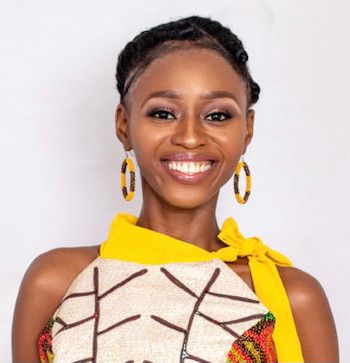Margaret Cassell

Summary: Margaret Cassell lives with sickle cell anemia, a genetic blood disorder that affects about 2% of Sierra Leoneans. She is a strong activist for others who are suffering from the disease. She founded the Cassell Sickle Cell Foundation, which advocates for protection and treatment of the disease. She’s been discriminated against because of her condition as well as her advocacy; nonetheless, she continues to reach out to millions in her home country.
Profile: Margaret Cassell, who works as a model, suffers from sickle cell anemia, a genetic blood disorder that affects about 2% of Sierra Leoneans, many of whom have no access to support or medication. It is estimated that 80% of children with sickle cell anemia die before they reach their fifth birthday. Cassell was diagnosed with the condition when she was nine years old and almost died from it when she was 21. She missed many classes in college but still managed to graduate.
She founded the Cassell Sickle Cell Foundation, a nonpartisan advocacy organization that seeks to provide information about the disease and mobilize support for its victims in both urban and rural settlements in Sierra Leone. She has continually tried to persuade the government to mobilize resources to fight the disease.
“But it has been difficult,” Cassell says, “especially in my country, to have relevant stakeholders take up my campaign since we are viewed by many as people who don’t deserve help, especially at the national level.”
SCA is a major public health concern, yet national control programmes are rare, the basic facilities to manage the patients are chiefly absent, and screening is only available in the capital, Freetown. Mis-diagnosis is common, with many health workers interpreting the symptoms as malaria. Cassell also wants those living with sickle cell anemia to take genotype tests, which provide information for people considering marital partners so that they are less likely to pass the disease on to their children.
Unfortunately, sufferers of this disease are frequently subject to discrimination because of their condition. Many label her campaign— which she promotes using her status as a beauty queen—as merely “seeking attention.” In 2019 while representing the Western Area Urban in Miss Sierra Leone Beauty Pageant, she was shamed and stigmatised by fellow contestants due to her condition.
She won’t quit. She recounts a motivating moment working as a volunteer at a Freetown children’s hospital. While there, she saw children battling with sickle cell disease, and like herself, they have shown the fighting spirit to defeat the disease. “It is because of those kids, people with disabilities, women and babies that have been sexually abused, the underprivileged and all of those that have suffered from one cause or another that I keep on. I am in these contests, she says, “to represent the voices of the less cared for, the forgotten and the underprivileged.”
She has been sexually harassed. In 2020, she was physically attacked because of her advocacy work.
Despite the obstacles, says Cassell, “I will not be forced to stop spreading awareness about the sickle cell disease until the government and donor partners in this country accept the emergency attached to [it] (blood donations from healthy donors in the public are essential to fighting the disease). We have the responsibility to provide a voice for victims of this disease while providing hope. . . . We are not humans waiting to die; rather, full-bodied adventurers ready to lead, live, and achieve our goals.”
In 2023, Sierra Leoneans will elect a new president and Cassell hopes to use the election to push the new government to pay attention to a disease that’s eating deep into the lives of Sierra Leone citizens.
As for Cassell’s personal goals: “So many people die without knowing their true purpose on earth. I want to be remembered for something: that she used her voice to impact change.”
Cassell holds a bachelor of Science Degree in Home Economics and Community Development from Njala University.
